October 2, 2014
Movers & Shakers
Are you a mover and shaker? That is to say: you move plants around and shake your head that you didn’t do it sooner.
That’s me! In the case of this rock rose (Pavonia lasiopetela), I didn’t do a thing. It picked the spot to seed in front of blue plumbago where brief shafts of sun penetrate filtered shade.
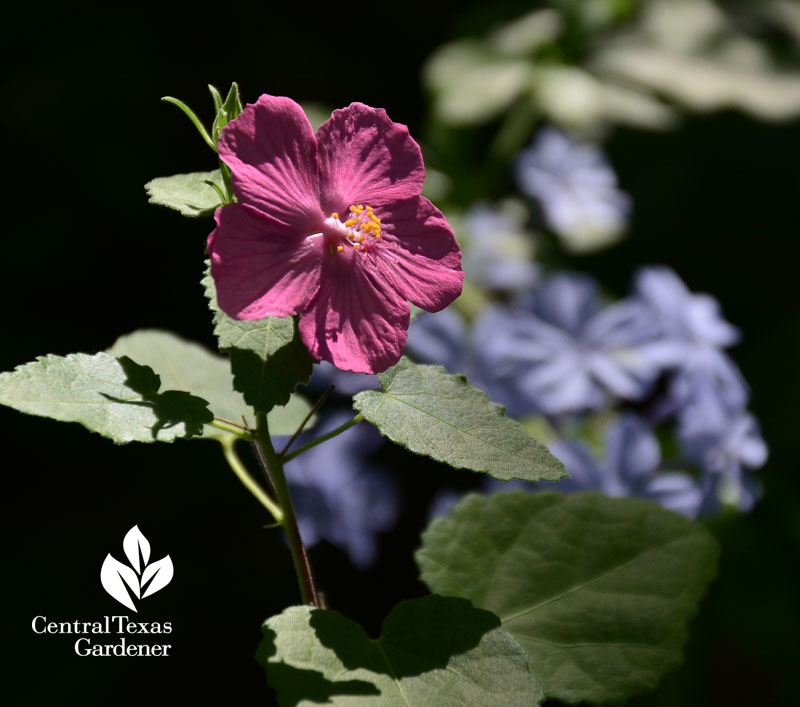
Even though November – February is the best time to move trees, shrubs, evergreen perennials, and roses, I’ve jumped the shovel gun a little. I’d already bought replacements for things getting too much shade. For now, I won’t disturb my Salvia ‘Silke’s Dream’, though it’s a bit skimpy, overcrowded, and stretching for light.
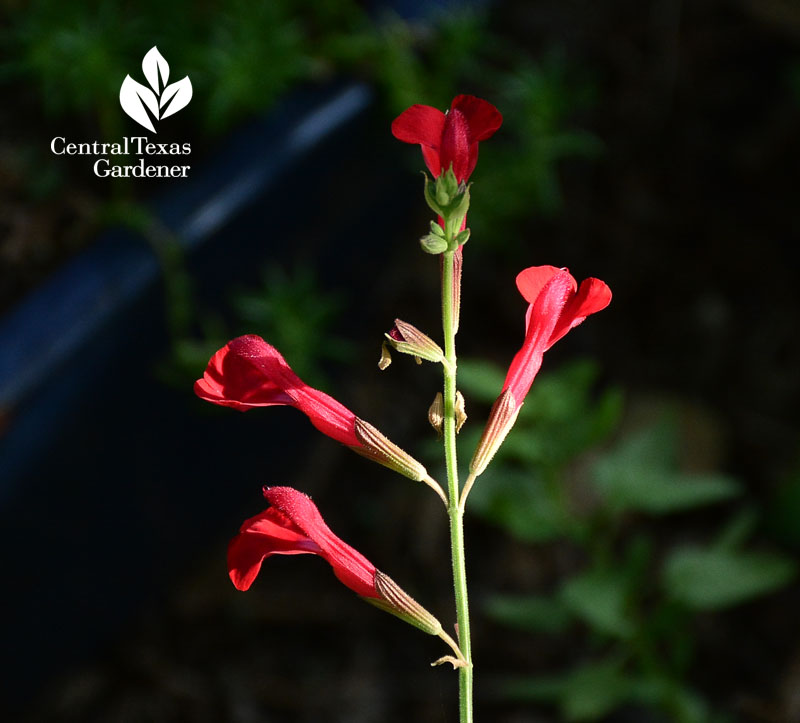
I was shaking my head about my new raised vegetable bed. In its first winter season, it looked okay.
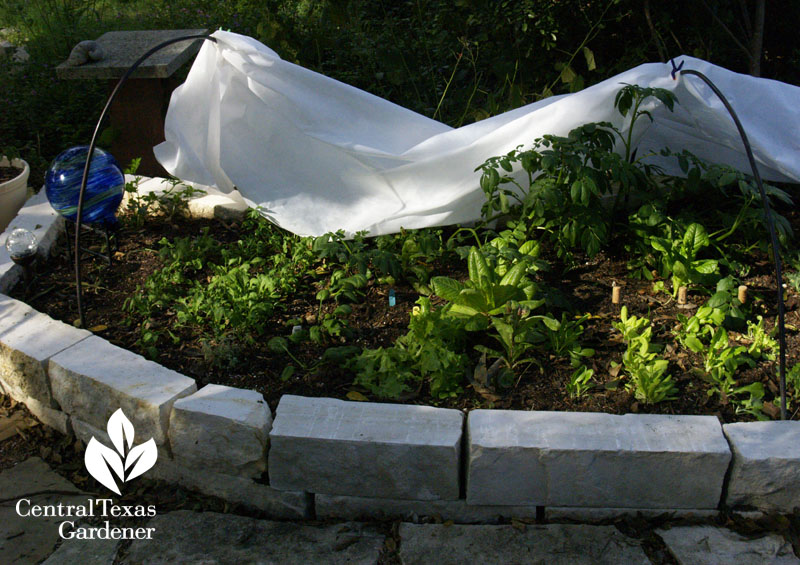
Suddenly, everything cratered. What did I do wrong?
Well by golly, Daphne’s heard from many gardeners with the same issue. Like me, they’d put in lots of compost and good soil and watered it well.
Not so fast, there, veteran gardener who messed up. Daphne explains what happened: new soil and compost can be dry, dry, dry. You THINK you’ve watered it, but even 2” down is still dry as dust.
Solution: water, mix, water, mix. I’ve been doing it for three weekends. Even after 5” of rain, I turned the soil to find it dry just below the surface. This weekend I’ll do the final turn and then plant lettuce, arugula, cilantro, parsley, garlic, and Swiss chard.
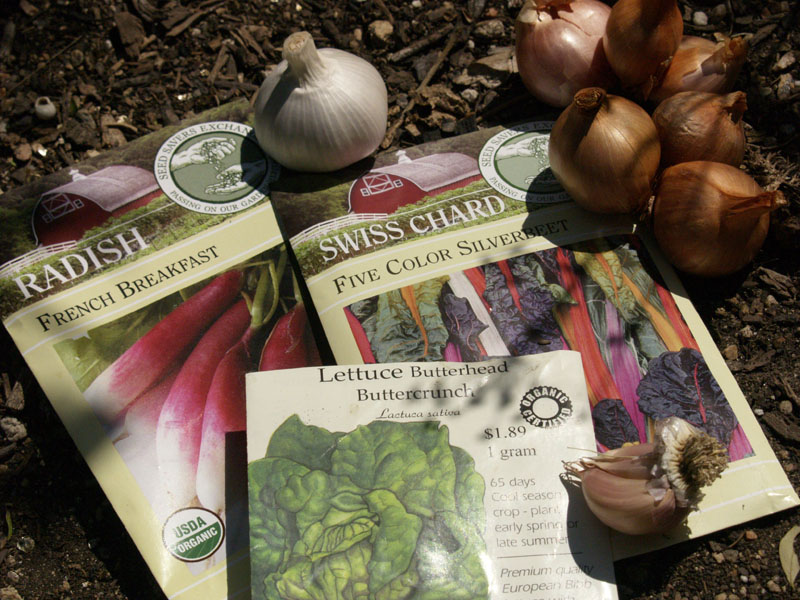
Get Daphne’s complete answer and how to include Plant of the Week Swiss chard among your ornamentals like Gomphrena ‘Little Grapes.’
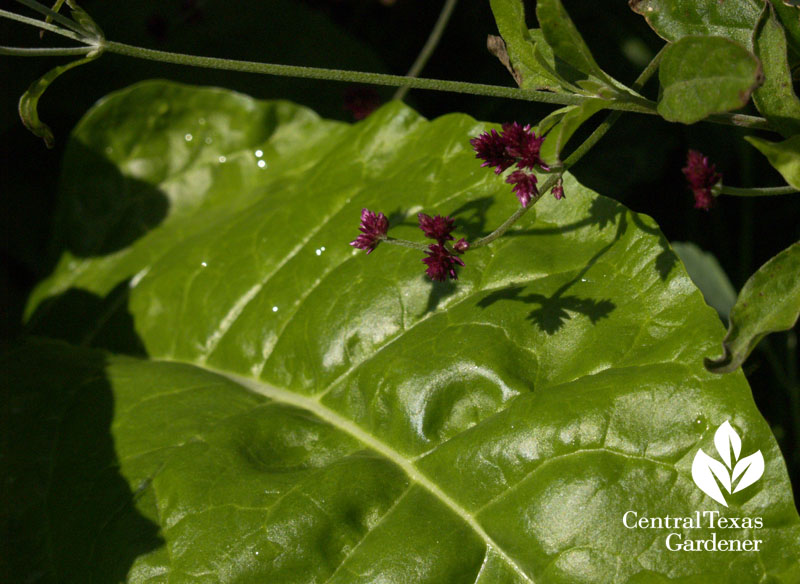
Now, what about mulch? Yes, we know it’s a good thing, but what is the best one? Like everything, it depends on the plant. Andrea DeLong-Amaya from the Lady Bird Johnson Wildflower Center deciphers it for us.
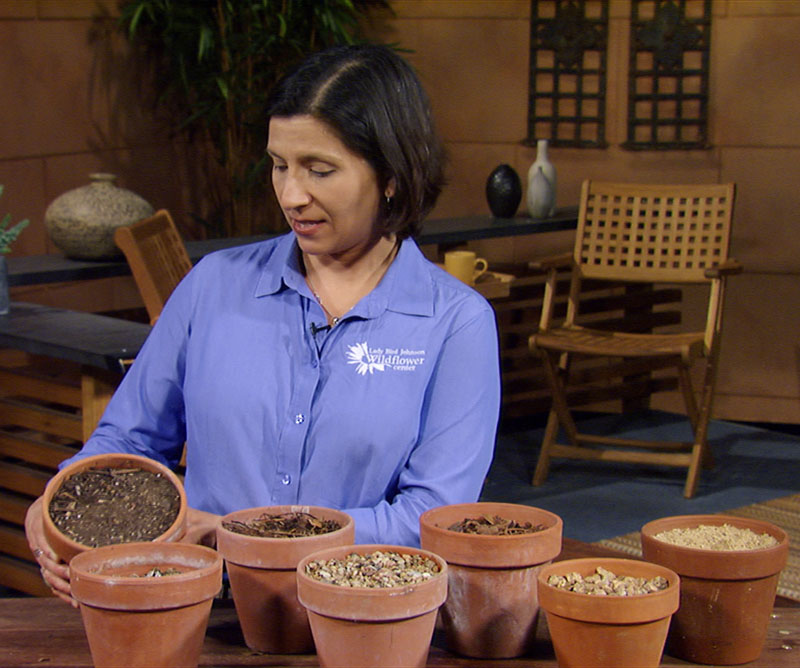
Maybe you’ll run into Andrea at the LBJWC fall plant sale Oct. 11- 12 (members day Oct. 10). If you’ve admired my native Hibiscus martianus, I see that it’s on the list this year. By the way, that list is great reference!
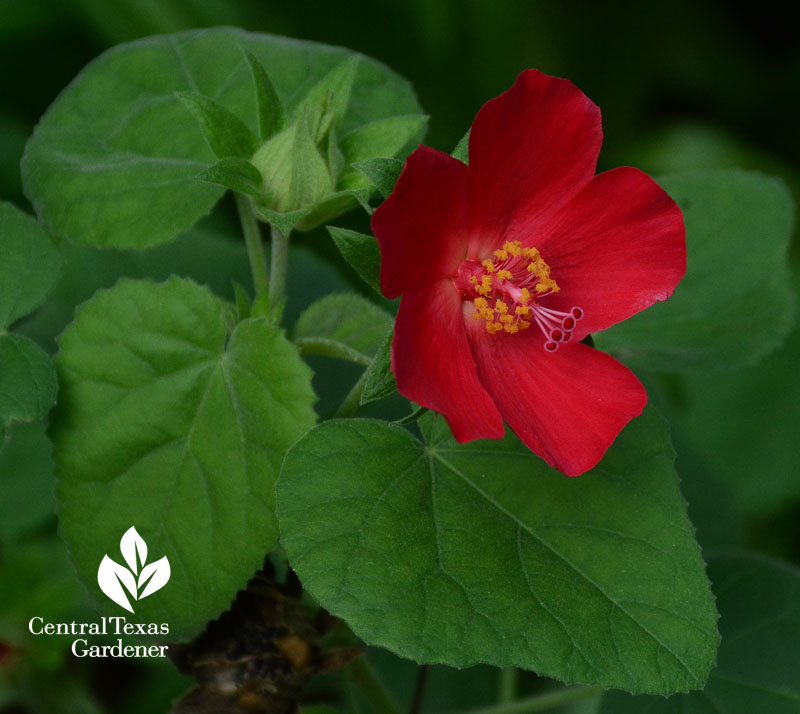
And do check out the Wildflower Center’s Landscape for Life series that starts Oct. 15. This is a great way to learn how to transform your yard into a sustainable garden!
Bluebonnets are coming up, thanks to recent rains. To start your first patch, get seeds to plant in early November. Viewer Picture goes to Melinda McGowan and Leo’s bluebonnet selfie last spring!
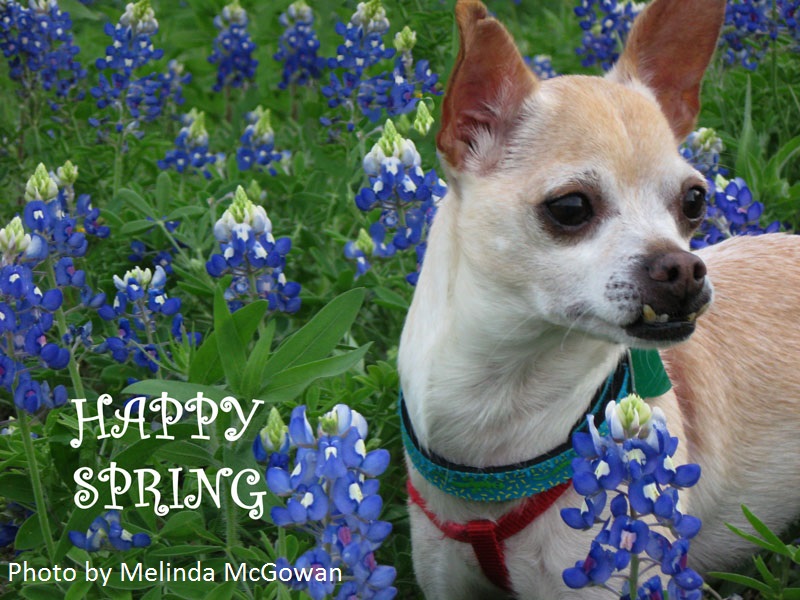
Mover & shaker Red Dirt Ramblings author Dee Nash joins Tom to dish up the real dirt on gardening in her book The 20/30 Something Garden Guide.
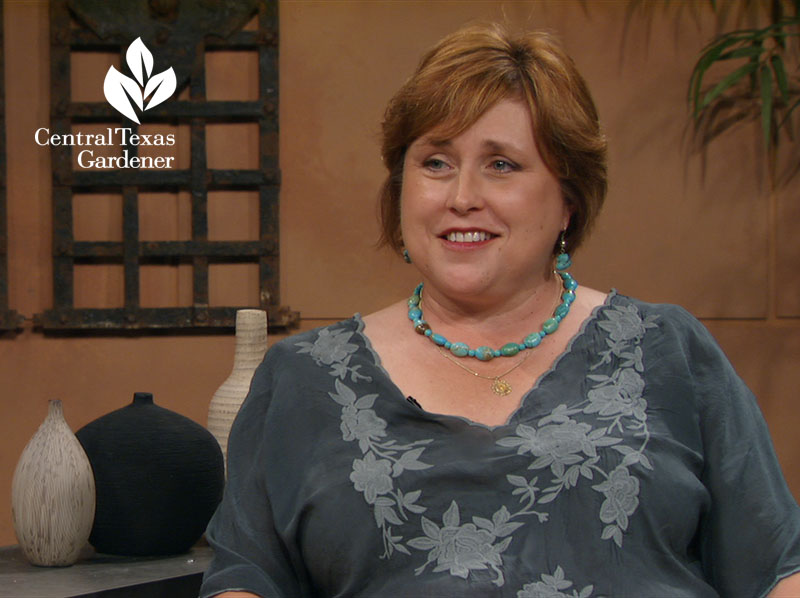
Written for new soil grubbers, veterans will also whoop about her colorful graphic designs, DIY instructions, and plants from food to fragrance.
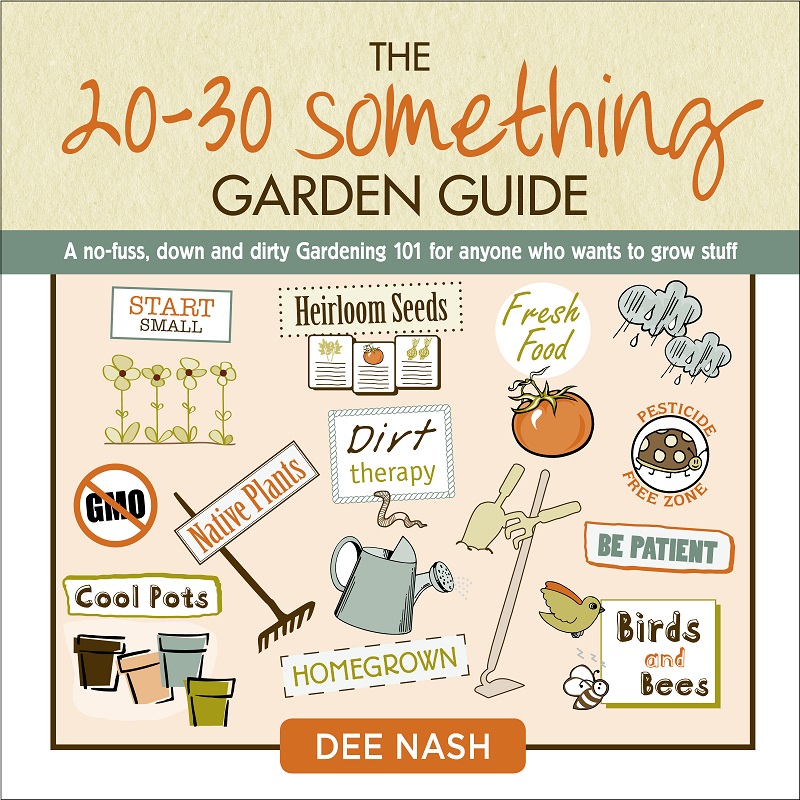
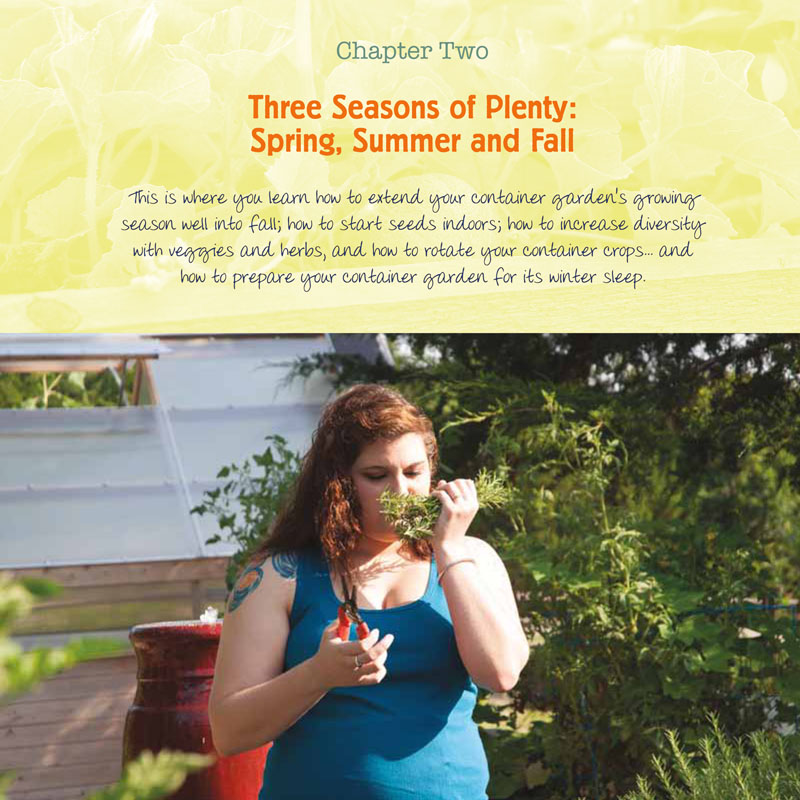
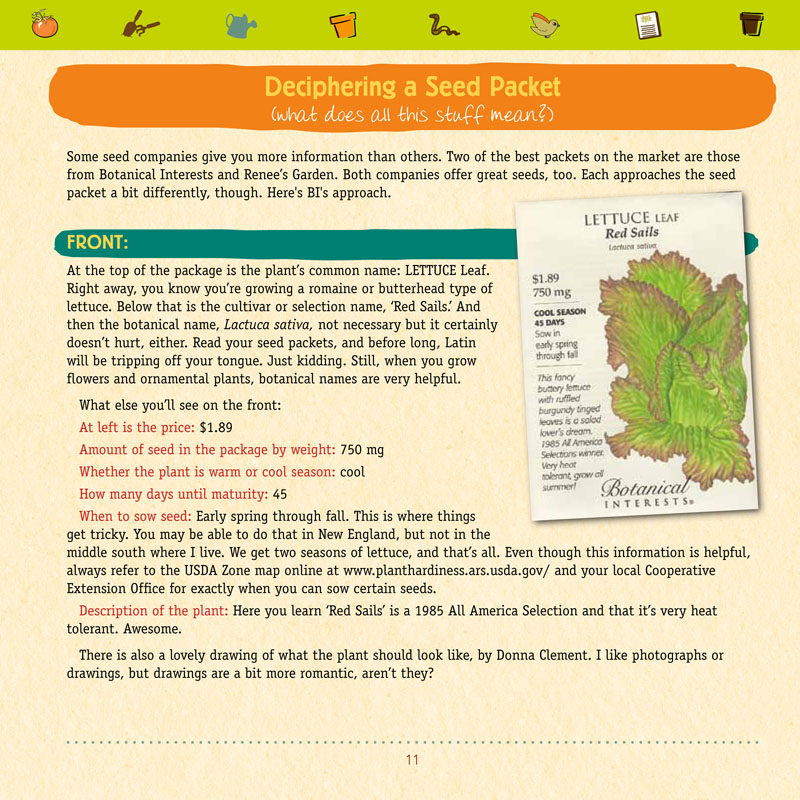
Along with plant tips & tricks, she makes it easy to visualize designs to shake up that dull yard—even in tiny spaces.
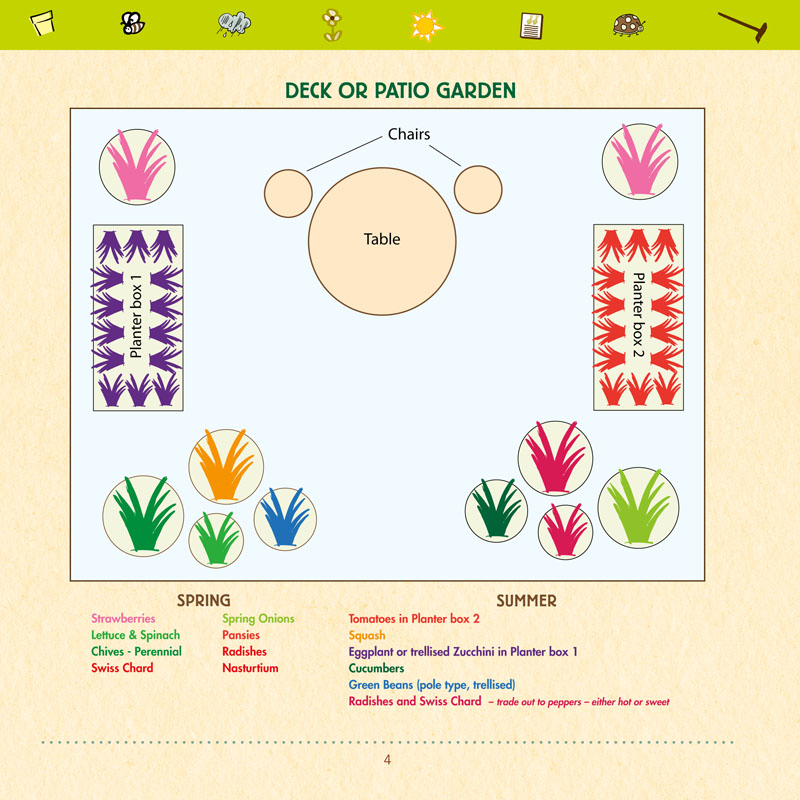
Dee sprinkles in lots of pictures, including her own deliciously beautiful garden.
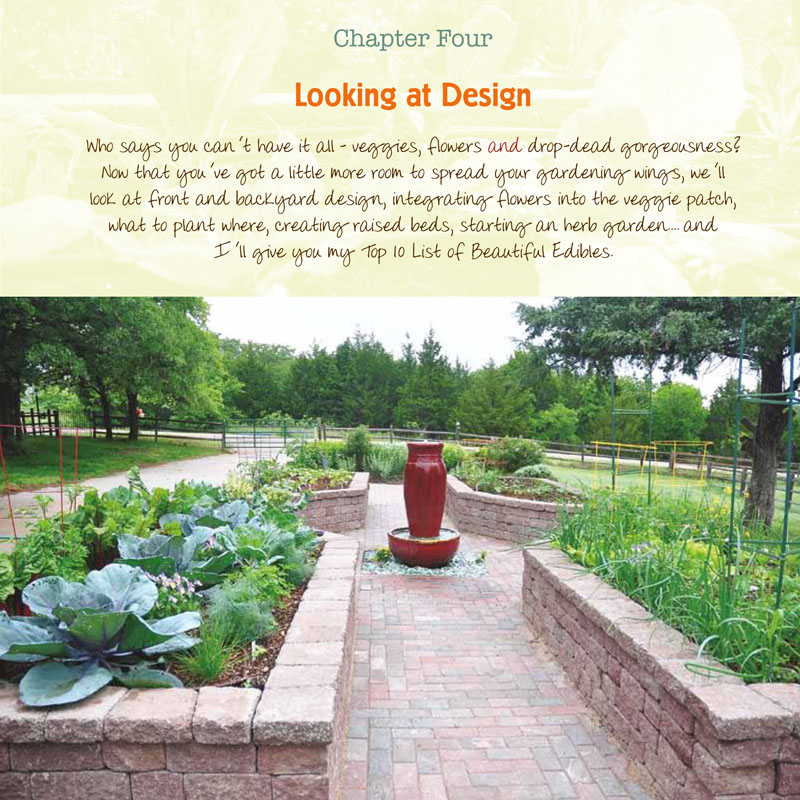
On tour, meet the energetic young urban farmers shaking things up at Ten Acre Organics. Co-founders Lloyd Minick and Michael Hanan are joined by Michael’s wife, Marie Franki, and Grayson Oheim, Kimberly Griffin and Mike Jeffcoat.
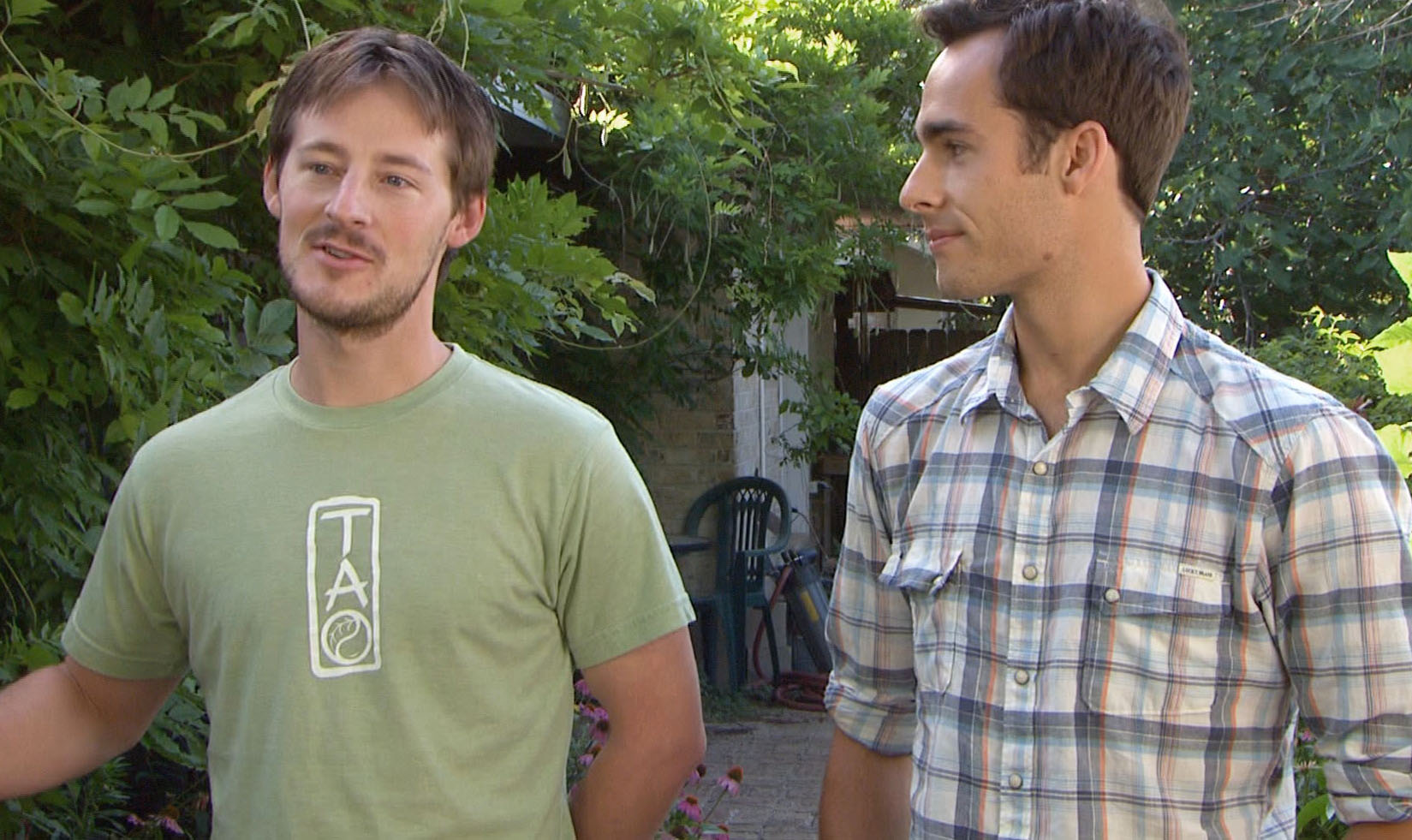
Oh, it’s not 10 acres of land either! It’s a typical 1970s suburban lot where food rules now instead of grass.
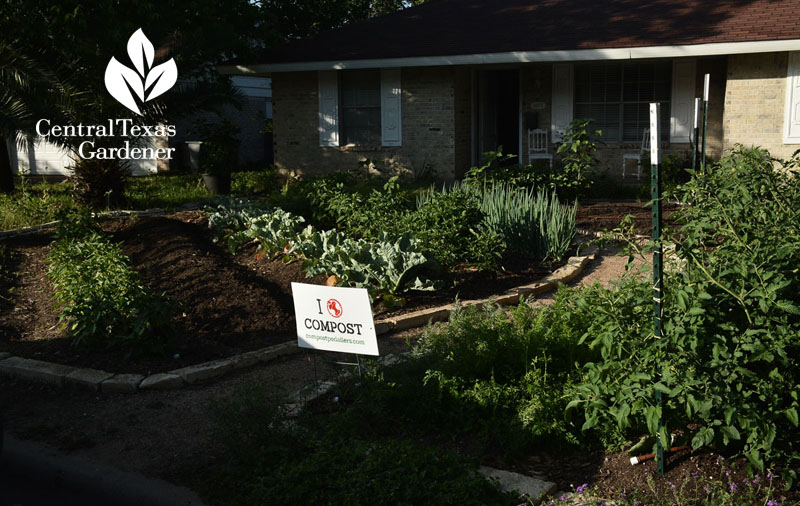
Drip hose irrigation and lots of compost and mulch conserve water.
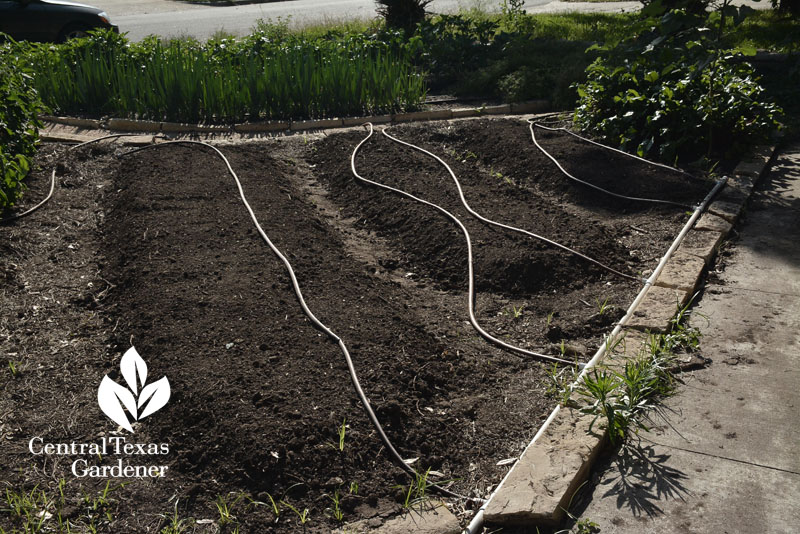
They didn’t forget to feed the pollinators.
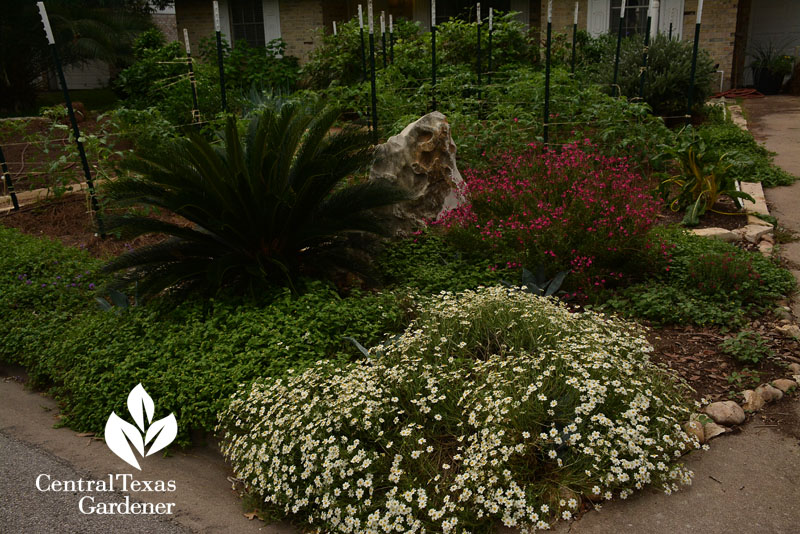
In back, two aquaponics greenhouses frame rotational ground crops.
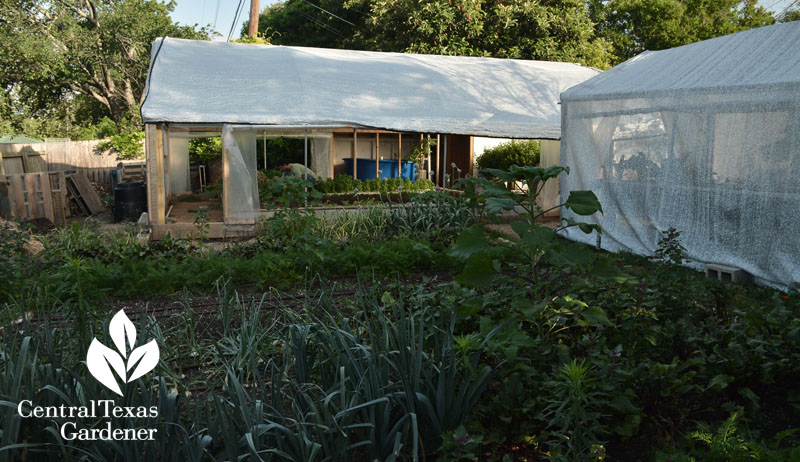
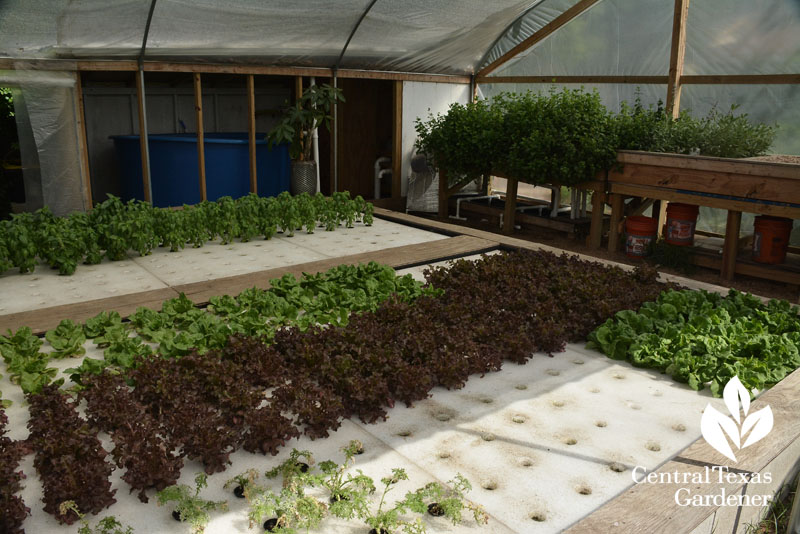
Happy hens in the TAO coop never lay down on the job, either.
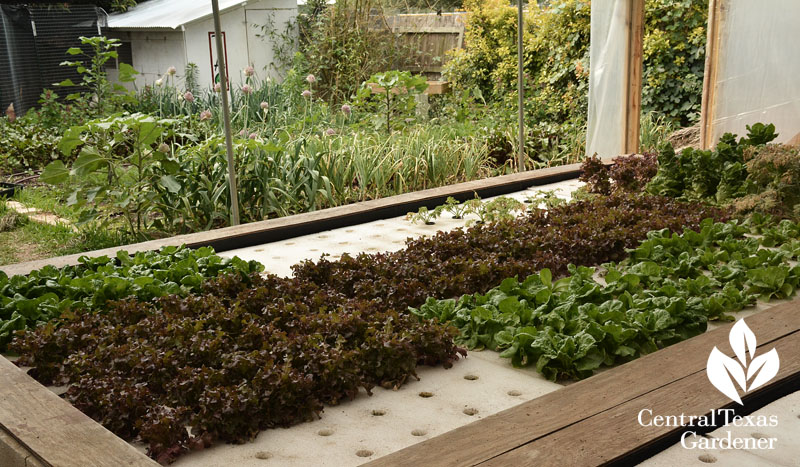
Even though it’s not 10 acres (yet), they’re supplying lots of organic food to restaurants and neighbors.
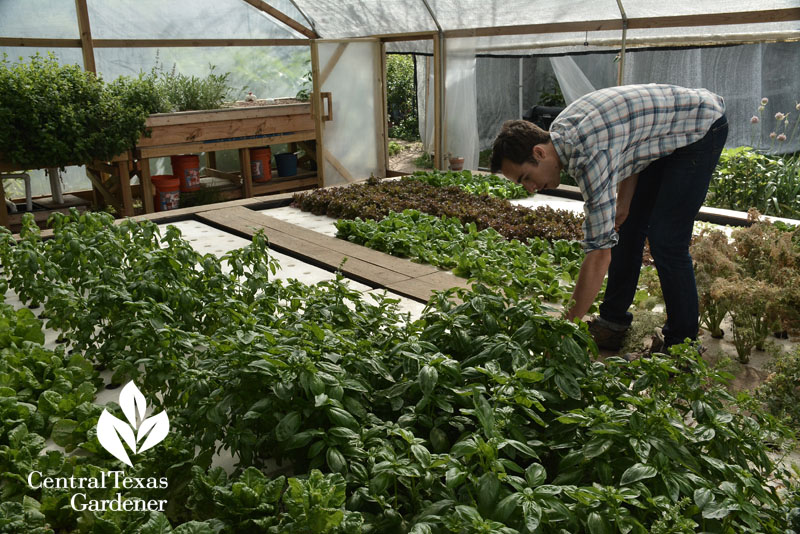
Rob Nash at Austin Aquaponics launched them into this water-wise method to grow organic food.
To build up formerly lifeless soil for productivity and water retention, TAO nurtures several compost bins, filled weekly as a drop-off site for East Austin Compost Pedallers.
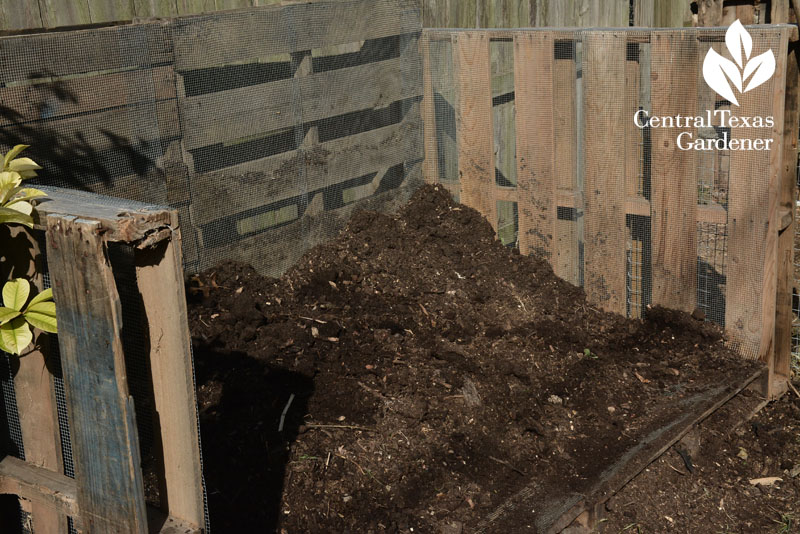
Watch the whole story now!
Thanks for stopping by! Next week, we celebrate Texas Native Plant Week. See you then, Linda
tags:

